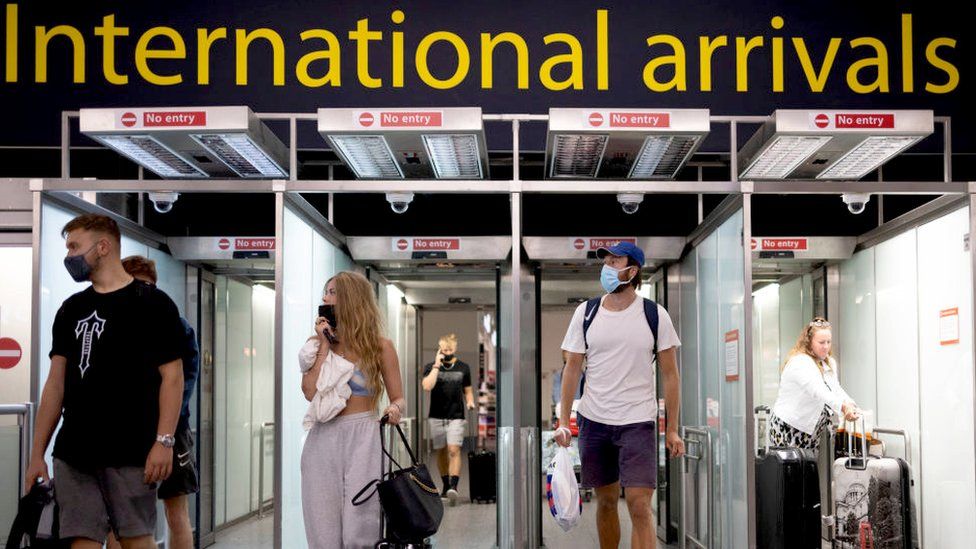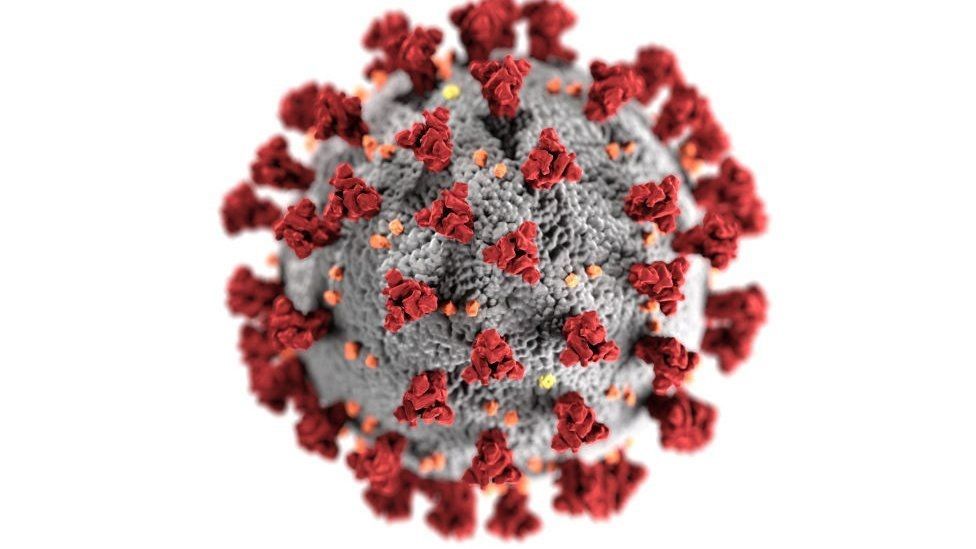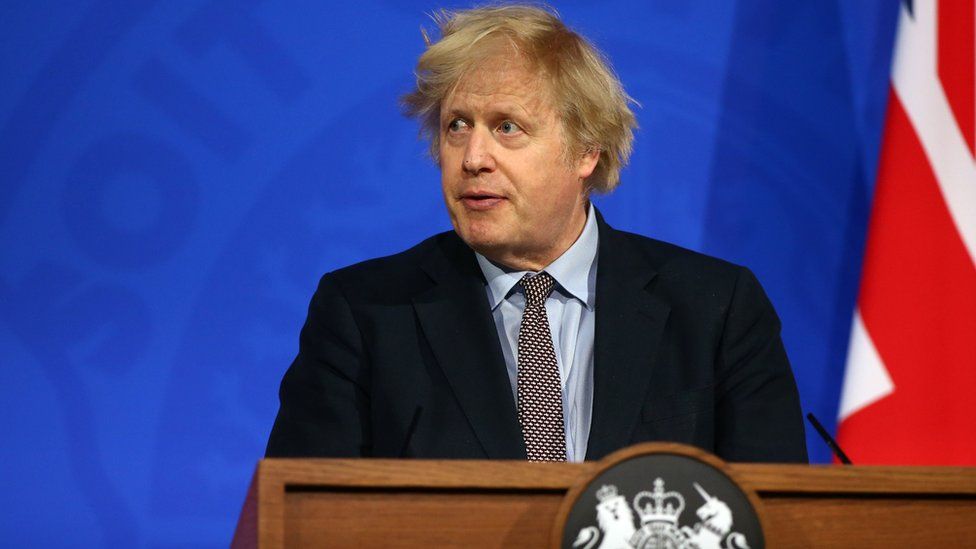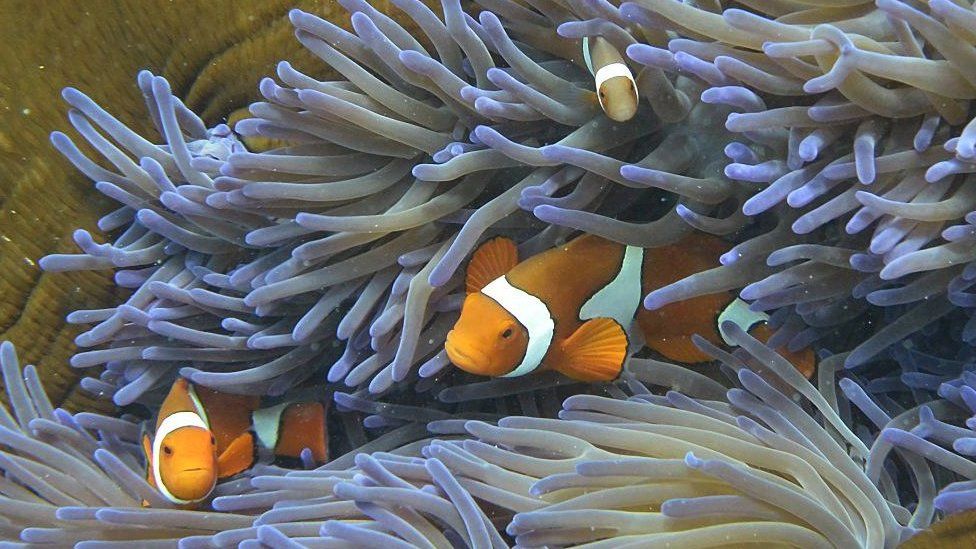300,000 suspected of breaking travel quarantine

By Hannah Wilkinson, Sept. 13: Nearly a third of people arriving in England and Northern Ireland as the coronavirus Delta variant took off may have broken quarantine rules.
More than 300,000 cases were passed to investigators between March and May, according to figures seen by the BBC.
The government was not able to say how many of these were found to have broken the rules or could not be traced. The Home Office has said it aims to pay home visits to all travellers suspected of not following the rules.
But Labour's shadow home secretary Nick Thomas-Symonds said the figures obtained by the BBC "confirm our worst fears" about the government's "lax border policy". And he accused the Home Office of "gross negligence".
It comes as the prime minister is about to announce his winter Covid-19 plan, along with plans to get rid of coronavirus powers the government no longer needs - including the legal authority to shut down schools and some businesses.
Boris Johnson is expected to emphasise the importance of vaccines in allowing a return to nearly normal life and to set out plans for a third dose as a booster, which will be offered to older people first.
But final decisions are still awaited on vaccinating healthy 12- to 15-year-olds and on measures to make it easier to travel abroad.
Earlier this year, the government introduced new rules for people arriving from abroad in an effort to slow the spread of coronavirus and stop new variants from arriving in the country.
People arriving from high-risk countries - deemed "red list" - had to quarantine in a hotel.
Those coming from "amber list" - or medium-risk areas - were required to self-isolate for 10 days and provide evidence of negative Covid tests. From 17 March to 31 May more than a million people arrived in England and Northern Ireland from amber list countries.
Figures for this period obtained under Freedom of Information laws show a total of 301,076 cases were referred to investigators for checks on whether they were self-isolating.
During this time, the highly contagious Delta variant of coronavirus - first detected in India - was spreading rapidly through the country.
Call handlers employed by the Department of Health and Social Care were tasked with contacting arrivals to check they were obeying the self-isolation and testing rules.
Cases where the contact ended the call, refused to co-operate, indicated they would break the quarantine or testing rules, or could not be contacted after three attempts were referred to investigators at the Border Force Criminal Justice Unit and the police.
Officers would then attempt to visit the contact at home to check they were following the rules.
After 26 April, the Home Office hired private contractor Mitie to carry out home visits to international travellers required to isolate, from contacts supplied by NHS Test and Trace.
"We visit over 99% of the cases referred to this service by NHS Test and Trace," a government spokesman said.
In Wales, the Arriving Travellers Team is responsible for monitoring compliance with the rules - including escalating cases to regional teams to undertake doorstep visits if deemed necessary.
And in Scotland, quarantine measures are monitored by Public Health Scotland through the National Contact Tracing Centre. PHS has the ability to refer cases to Police Scotland.
Recent News

Do not make expressions casting dout on election: EC
14 Apr, 2022
CM Bhatta says may New Year 2079 BS inspire positive thinking
14 Apr, 2022
Three new cases, 44 recoveries in 24 hours
14 Apr, 2022
689 climbers of 84 teams so far acquire permits for climbing various peaks this spring season
14 Apr, 2022
How the rising cost of living crisis is impacting Nepal
14 Apr, 2022
US military confirms an interstellar meteor collided with Earth
14 Apr, 2022
Valneva Covid vaccine approved for use in UK
14 Apr, 2022
Chair Prachanda highlights need of unity among Maoist, Communist forces
14 Apr, 2022
Ranbir Kapoor and Alia Bhatt: Bollywood toasts star couple on wedding
14 Apr, 2022
President Bhandari confers decorations (Photo Feature)
14 Apr, 2022








